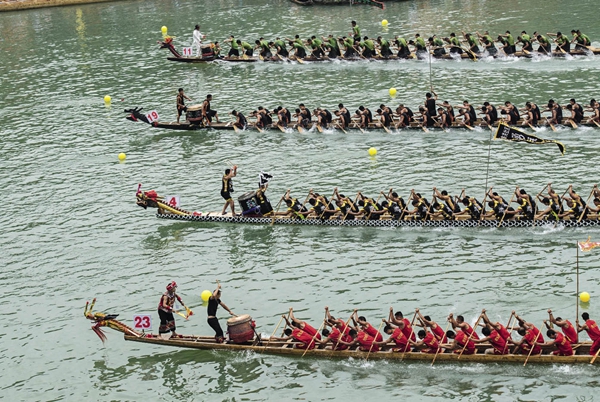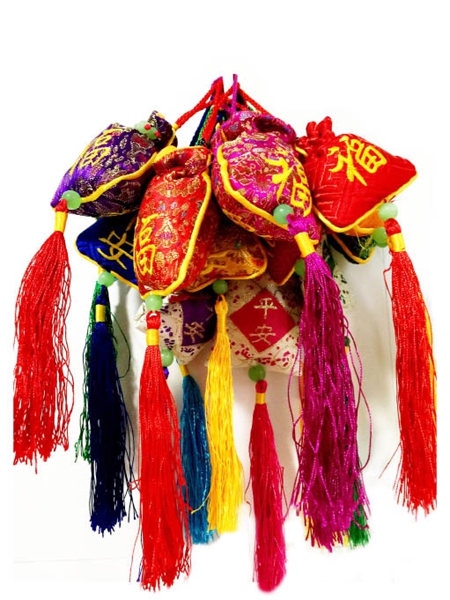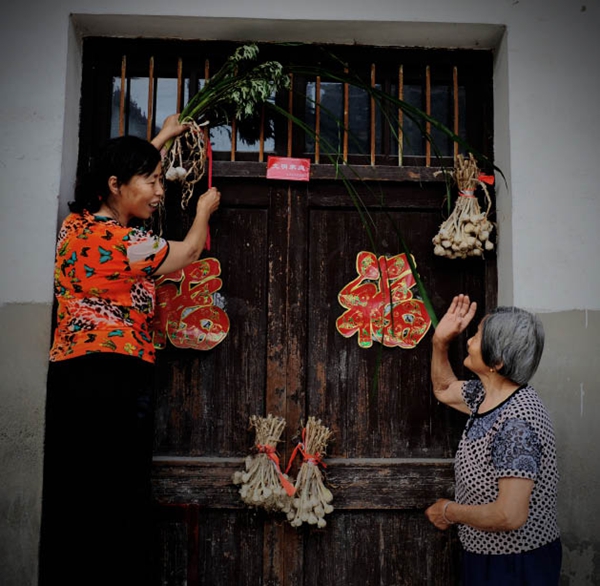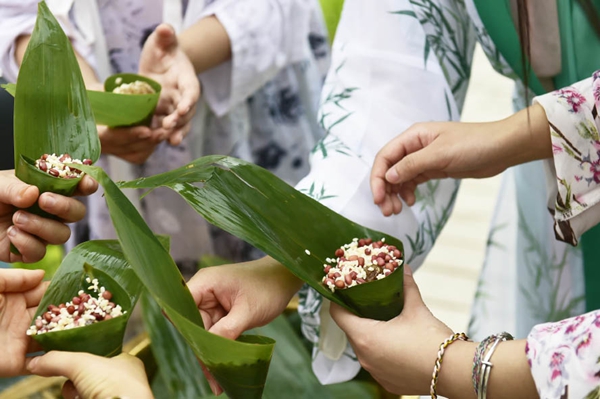AMONG China’s many traditional fêtes and holidays, the Dragon Boat Festival, or Duanwu Festival in Chinese, carries particular significance. Held on the fifth day of the fifth lunar month, it has been celebrated for more than 2,000 years.

A dragon boat race in Zhenyuan, Guizhou Province.
There are various theories as to its origins. The one most widely accepted is that it commemorates the death of the great patriot and poet Qu Yuan (340-278 BC). Born to an aristocratic family in the State of Chu during the Spring and Autumn period (770-476 BC) Qu is one of the earliest known poets in Chinese history, and regarded as founder of Chinese romantic literature.

Small sachets stuffed with herbal medicines to ward off diseases.
A senior Chu court official, Qu advocated appointments according to ability, rather than connections, and governance according to laws. He also urged armed resistance, in alliance with other small states, against the aggressive State of Qin. Jealous machinations by other officials, however, resulted in Qu being banished from the royal court. As he feared, in the year 278 BC, Qin armies overtook the State of Chu. Devastated and grief stricken upon hearing this news, Qu embraced a rock and drowned himself in the Miluo River. His death occurred on the fifth day of the fifth lunar month.

People hang cattail and mugwort leaves on their doors to avoid pestilence and drive away poisonous insects.
Legend has it that, upon hearing of Qu’s passing, local Chu villagers congregated at the riverside to hold a memorial and pay their respects. After rowing back and forth in vain attempts to salvage the poet’s body, one boatman threw rice balls and eggs into the river to distract hungry fish and shrimps away from it. A senior physician also poured a jar of realgar wine in the water to drive away dragons and water beasts. Over the centuries that followed it hence became customary on the fifth day of the fifth lunar month, which usually falls in early June, to hold boat races, eat zongzi (pyramid-shaped rice balls wrapped in reed leaves), and enjoy realgar wine throughout the country.

Zongzi, the snack synonymous with the festival.
The year 2006 saw inclusion of the Chinese Dragon Boat Festival in the first batch of national intangible cultural heritage. This item comprises four parts – the Duanwu customs of Qu Yuan’s hometown in Zigui County, Hubei Province; Xisai boat of gods parade in Huangshi City of Hubei Province; Duanwu customs along the Miluo River in Miluo City of Hunan Province; and Duanwu customs in Suzhou City of Jiangsu Province. In 2009, the Chinese Dragon Boat Festival was added to the UNESCO list of world intangible cultural heritage. It thus became the first of Chinese festivals to be included in the inventory.
